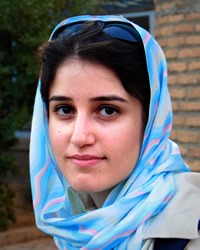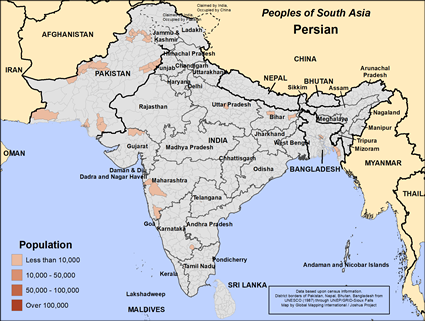By definition, Persians (also known as Iranians) are an ethnic group native to Iran. The Persian language, called Farsi, is part of the Indo-Iranian language family, and is the official language of Iran. Around 1000 B. C. , Persian groups began to settle in the territory that is now Iran. Loosely associated Persian tribes became a more cohesive political unit under the Achaemenian dynasty. Their unity soon made them the dominant ethnic group in the region. For 1,200 years, Persia maintained a culture that became increasingly more complex and rigid. This laid the foundation for a successful Arabian conquest of Persia in the seventh century AD. It was not until the Islamic revolution of 1979 that massive changes came both to Iran and to the Persian people. Although the vast majority of Persians now live either in Iran or in one of the nearby Central Asian or Middle Eastern countries like Bahrain, small Persian communities might also live in many other nations around the world, especially in the West.
Persian farmers in Uzbekistan depend heavily on artificial irrigation. They also make crafts such as hand-woven items, rugs, and pottery. The production of oil has also provided numerous jobs for the Persians. In fact, many of the Persians who live abroad work in this field. Urban Persians can be craftsmen, shop owners, merchants, real estate investors, and other commercial and industrial businessmen. The typical rural Persian home is a single-story dwelling made of clay. It is constructed with a framework of wooden columns, a flat roof, and no windows. Light comes in either through the door or through an opening in the roof. Village populations vary from as small as a few households to more than a thousand people. The size of each village depends primarily on the availability of farmland and water. Homes in cities are usually constructed of burnt bricks. They are built over high foundations and have terraces. The basic social and economic unit in Persian culture is the nuclear family; however, some families join together to make larger units. Families are traditionally patriarchal, patrilineal and patrilocal. This means that their society is strictly male dominated. The line of descent is traced through the father; property and inheritances are passed down through the males; and family and political rule belong to the men. Persian women are submissive to their husbands in public; however, they often hold a considerable amount of decision-making power in private. Men are guardians and defenders of the family honor and are responsible for protecting the chastity of their daughters and sisters. Persians prefer cross cousin marriages. Persians and any other Shia Muslim group are under the suspicion of the government of Uzbekistan. This is especially true for any who offer classes or literature about Shia Islam.
Prior to the Arab invasions, the Persian religion was Zoroastrianism. This religion taught that there was an eternal struggle between the forces of good and evil. Shia Islam became the national religion of Iran in the sixteenth century, at which time the ulama (clergy) began playing an important role in both the social and political lives of the people. Today, most Persians are Shia Muslims of the Ithna Ashari branch, and are radical in their adherence to Islamic laws and principles. Thanks to the excess of the Iranian government, a high percentage of Persians are secularized and tired of forced religion. The Lord is growing his Church in Iran, and many have come to faith in recent years. Unfortunately, this does not seem to be affecting Persians in Uzbekistan.
Persians need their spiritual eyes will be opened. Some are staunch Shia Muslims while others are secularized. They need believers to take the glory of Christ to them.
Pray for Persian believers from Iran to take Christ to Persians in other countries including Uzbekistan. Pray for a spiritual hunger among the Persian diaspora that will result in a movement to Christ in Uzbekistan and throughout Central Asia. Pray for the Lord to show himself powerful and loving to the Persians in Uzbekistan.
Scripture Prayers for the Persian in Uzbekistan.
| Profile Source: Joshua Project |













